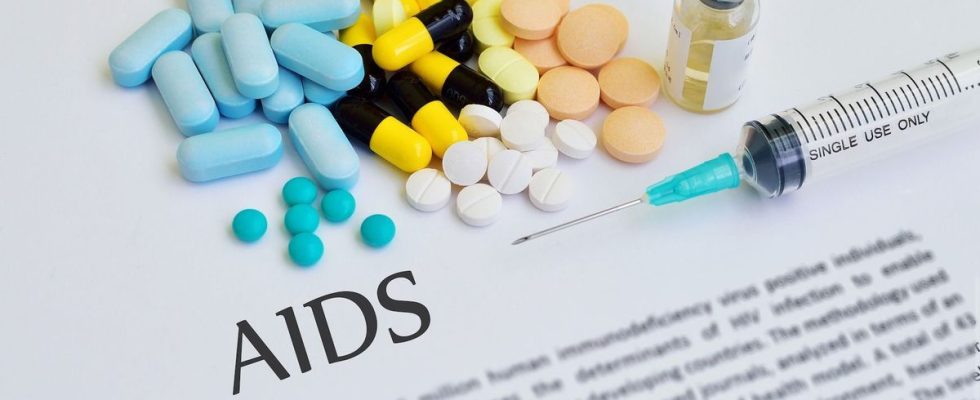Published on
Updated
Reading 2 min.
Implementing antiretroviral treatment just four weeks after HIV infection could make it possible to control the virus in the long term after stopping treatment, suggest the results of a recent study communicated Tuesday by the Pasteur Institute.
These results, published last week in the British scientific publication Nature Communication, “reinforce the interest in early detection and treatment as soon as possible for people” who have contracted HIV, underlines Pasteur.
Does treating very early help control the virus?
The cohort study VISCONTI, composed of 30 patients called “post-treatment controllers”, provided proof of a possible and lasting state of remission in people living with HIV. These people benefited from early treatment, maintained for several years. Then, when their antiretroviral treatment was interrupted, they were able to control their viremia for a period exceeding 20 years in some cases.
The researchers then hypothesized that treatment started early could promote this viral control, but this remained to be demonstrated.
Initiate treatment within 4 weeks after infection
In this new study, the scientists carried out their research on monkeys and compared the animals: one group received two years of treatment which started shortly after infection (in the acute phase), another two years of treatment which had started several months after infection (in the chronic phase), a group which had not received treatment. Animal experience makes it possible to control all the parameters (sex, age, genetics, strain of the virus, etc.) likely to impact the development of immune responses and progression towards the disease.
Results: early treatment implemented within four weeks following infection “very strongly promotes viral control after interruption of treatment”.
“Our study indicates the existence of a window of opportunity to promote remission of HIV infection“, commented Asier Sáez-Cirión, head of the Viral Reservoirs and Immune Control Unit at the Pasteur Institute, and co-senior author.
Another lesson: early treatment maintained for two years optimizes the development of memory CD8 T immune cells. “They acquire an effective memory against the virus, to eliminate it naturally during viral rebound after stopping treatment.“, according to Asier Sáez-Cirión.
Results which reinforce the interest of early detection
“Starting treatment six months after infection – a time which shows a loss of effectiveness according to our study – is already considered very short compared to what is currently happening in the clinic, where most people with HIV start their treatment. years after infection due to late screening“, underlined Roger Le Grand, director of the IDMIT (Infectious Diseases Models for Innovative Therapies) infrastructure and co-senior author of the study.
These results reinforce the interest in early detection and treatment as early as possible for people with HIV. “The effect of early treatment will be twofold: at the individual level, because early treatment prevents the diversification of the virus within the body and preserves and optimizes immune responses against the virus; and at the collective level, because it avoids the possibility of transmitting the virus to other people”adds Asier Sáez-Cirión.
